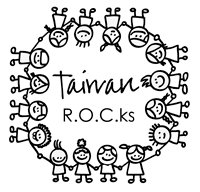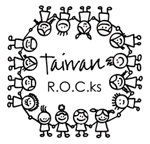Could it be possible that surrounding our kids with others who loosely resemble them actually do more harm than good? “Don’t be silly!” many would retort. “There’s everything to gain and nothing to lose.”
I would like to believe that those people are right. However, my own experiences make me stop and ponder. If we do place our boys in the local public school, we would be putting adopted William in an environment in which he would be surrounded by Asian kids who are mostly children of immigrants, if not immigrants themselves. The same kids who might help him feel more comfortable with his ethnicity may also be the same ones who might give him the greatest grief about his heritage and how he might choose to express it.
In my 36 years, I have found that it is sometimes the 1st and 2nd generation Asian-Americans who hold the narrowest view of what Asians should or shouldn’t be. They can sometimes be quick to make their opinions known. On multiple occasions, I have been given a hard time about my sorry Mandarin (“How come you Chinese but you no speak Chinese?”), my Caucasian boyfriend-turned-husband (“Hey, Judy, do you know what a Twinkie is?”), or my choice to join Christian groups in college that weren’t Asian-specific (whatever happened to the apostle Paul’s declaration that “there is neither Jew nor Gentile, neither slave nor free, nor is there male nor female, for you are all one in Christ Jesus”?).
Don’t get me wrong: I’ve had countless positive interactions with Asians, too. Not all are back-biting, self-loathing critics. However, my less-than-pleasant encounters have given me cause to think about our differences and the friction that may ensue as far as my children are concerned. While William is technically a first generation American (or 1.5 generation as some may classify him), his upbringing will probably be more similar to that of a 3rd generation Asian-American. His experience won’t be marked by the rigid adherence to old-world mores and the cultural groping-about-in-the-dark that characterize many 1st generation Asian-Americans, particularly those who moved to America as adults. It will lack the one-foot-in-the-West, one-foot-in-the-East dichotomy that many 2nd generation Americans, myself included, feel. Rather, like many 3rd generation Asian-Americans, I imagine William’s outlook will be more traditionally Western, that he will feel less tormented about picking and choosing which cultural expressions he wishes to retain or forego.
As such, he could very well have a harder time relating to his 1st and 2nd generation Asian-American peers. Whether those kids recognize it or not, there is an invisible bond that joins them. They can laugh at jokes like this, understanding the humor on a surface level that would engage anyone, regardless of race. Yet, they can also appreciate the immigrant frugalista mentality that gives the picture an added layer of humor because they’ve likely experienced it firsthand in their own family. They can read something like this and roll their eyeballs with everyone else at the harshness of the father’s response. However, they’re less prone to charge the father with emotional abuse because they can probably relate to the uncanny mix of severity and love, of sacrifice and good intentions that prompted his words. Chances are, lists of commonalities like this will have them wiping away tears from laughing so hard.
As the adopted child of a 2nd generation Taiwanese-American whose ways are more traditionally Western than Eastern, the deeper humor may well be lost on William. Sure, he’ll pick up a traditional mannerism or two from being around me, things that will naturally transmit with little effort on my part. For better or worse, he can already spot a sample cart at Costco from 100 feet away and maneuver his way toward it like a guided missile. As he gets older, nothing will thrill him like scoring a good bargain via multiple discounts and sad puppy-pleading for an additional price cut because the item is slightly stained. He will learn to honor his elders (though I won’t threaten to disown him if he puts me in a nursing home). He will learn from early on that he represents not only himself but every Asian because frankly, the world is watching, because there are enough ignorant people out there who’d sooner impute the crimes of a single Asian person upon the entire race. And whether it’s an Asian value or not, he will learn the value of a strong work ethic and not making excuses for himself (though if he breaks his arm, he will not force himself to operate on a patient the next day as my father did). Still, in the end, William’s cultural education will be one diluted by my own upbringing, filtered through my personal assessments of what did or didn’t work. As a result, he just might not be laughing as hard as his 1st and 2nd generation Asian peers.
Will a potential inability to relate innately to others of his heritage be just another thing he lost when he was placed for adoption? Only a fool would think he could return to Taiwan one day and be able to “disappear” among the native crowds. My own mother, who spent her first 20 years growing up there, can be easily spotted for a tourist when she returns to visit. Time and distance have an uncanny way of altering one’s mannerisms, style, and general outlook. Even here in the great melting pot of America, William could just as well have a hard time blending in with his non-adopted Asian peers. It would seem that the very act of adoption has wedged him between a rock and hard place when it comes to being fully accepted by people of his own heritage.
Perhaps it’s the worrier in me that fears this conundrum will one day be my son’s. For all I know, there are many international adoptees who go about their lives without wondering whether they’d fit in on either side of the ocean. Perhaps they live in communities that hold looser views of what people of their race “should” and “shouldn’t” be. Or, perhaps they experience antagonism but have the inner confidence to not be shaken by it. In William’s case, I’m hoping for the former scenario but will willingly accept the latter.
Like most parents, adoptive or not, I have resolved to do the best I can to raise my son to be happy and healthy, both inwardly and outwardly. I want so much to make William’s life one that is free of pain, but I know that this is just not possible on this side of heaven. Humans are imperfect beings capable of hurting one another deeply. Knowing that, what can I, as a concerned parent, do to prepare my son to deal with potential opposition from those of his own race? I could teach him to use chopsticks and speak Mandarin so he might “blend in” better with his Asian peers. (I’d argue that there is strong value in having our adopted Taiwanese and Chinese children learn these things.) But I also realize that such outward expressions can only go so far.
In the end, I know that it is the inward lessons that will have the greatest impact. Thus, I am endeavoring to teach my son how to forgive, to have a sense of humor in the face of adversity, and most of all, to place his self-worth in something far beyond his ethnicity and his ability to adhere to someone else’s notions of how to express it. For my husband and I, as Christian parents, this means teaching William that he is so precious that God himself would lay down his own life in order to live out eternity with him. Our child has worth because he is immeasurably worthwhile to his heavenly creator. To root his self-esteem in anything on earth, ephemeral as those things certainly are, would only lead to an endless cycle of disillusionment and bitterness. And isn’t there enough race-related anger in the world already?
These are not easy lessons to apprehend. As an adult, I find myself constantly struggling to learn and re-learn them. But if both William and I can have teachable hearts and learn that we have significance because of Who loves us and not because of the heritage into which we’ve been born, we might slowly but surely find ourselves knowing just a little better each day.
Written by Judy, Mom to Andrew and William
Whether you are already home with your child(ren) from Taiwan, waiting for your child(ren) to come home from Taiwan, or awaiting a referral from Taiwan, you're in the right place!!!
TAIWAN R.O.C.ks was a dream in 2010, and a reality in 2011! In 2010, Jules left a comment on Lisa C.'s blog, which Tiffanie responded to, which turned into an e-mail chain with the addition of Lisa R. That e-mail chain was all about a reunion for Taiwan families. Four blogging Mamas who each have a child born in Taiwan turned that circle of comments and e-mails into this. . .TAIWAN R.O.C.ks (Reuniting Our Children for Kinship and Support).
If you missed the first event, be sure not to miss the SECOND ANNUAL TAIWAN R.O.C.ks Event!!! Hope to see you there. Mark your calendars!
July 27th-29th, 2012 in CHICAGO!!
Your Taiwan R.O.C.ks Team,
Lisa C. (Tyler's Mom) - 2012 Team Lead
Jules (Hayden's Mom)
Lisa R. (Paige's Mom)
Tiffanie (Gracyn's Mom)
TAIWAN R.O.C.ks was a dream in 2010, and a reality in 2011! In 2010, Jules left a comment on Lisa C.'s blog, which Tiffanie responded to, which turned into an e-mail chain with the addition of Lisa R. That e-mail chain was all about a reunion for Taiwan families. Four blogging Mamas who each have a child born in Taiwan turned that circle of comments and e-mails into this. . .TAIWAN R.O.C.ks (Reuniting Our Children for Kinship and Support).
If you missed the first event, be sure not to miss the SECOND ANNUAL TAIWAN R.O.C.ks Event!!! Hope to see you there. Mark your calendars!
July 27th-29th, 2012 in CHICAGO!!
Your Taiwan R.O.C.ks Team,
Lisa C. (Tyler's Mom) - 2012 Team Lead
Jules (Hayden's Mom)
Lisa R. (Paige's Mom)
Tiffanie (Gracyn's Mom)
Tuesday, May 24, 2011
Subscribe to:
Post Comments (Atom)








Wow, Judy, what an amazing post. I am so glad that you chose to share your point of view with us. I struggle constantly with the lack of diversity in my children's school. There are some minorities, but not enough. But while I still wish for more diversity, your post makes perfect sense. Thank you thank you thank you.
ReplyDeleteIt is truly a great and helpful piece of information.
ReplyDeleteI am satisfied that you simply shared this useful information with us.
Please stay us informed like this. Thanks for sharing information.
graphic design